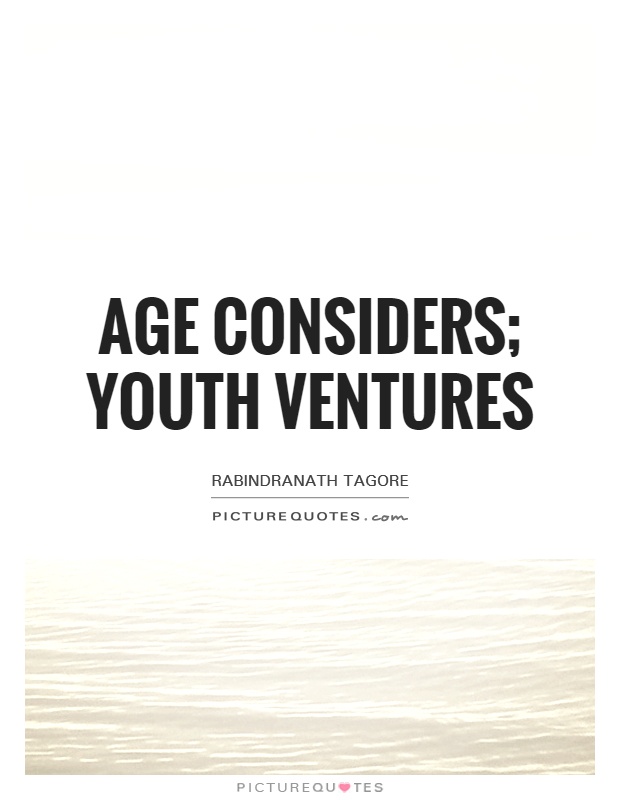Age considers; youth ventures

Age considers; youth ventures
Rabindranath Tagore, the renowned Indian poet, philosopher, and Nobel laureate, often explored the themes of age and youth in his works. One of his famous quotes, "Age considers; youth ventures," encapsulates the contrasting perspectives of the older generation and the younger generation.In Tagore's writings, age is often associated with wisdom, experience, and caution. The older generation is portrayed as being more contemplative, thoughtful, and conservative in their approach to life. They have lived through various trials and tribulations, and as a result, they tend to weigh their decisions carefully, considering the potential consequences of their actions. Age brings with it a sense of responsibility and a desire for stability and security.
On the other hand, youth is characterized by its energy, enthusiasm, and willingness to take risks. Young people are often portrayed as being bold, adventurous, and eager to explore new possibilities. They are not bound by the constraints of tradition or societal norms, and they are more inclined to follow their passions and dreams. Youth is a time of discovery, growth, and self-exploration.
Tagore's quote suggests that there is a natural tension between age and youth. While age may bring wisdom and prudence, it can also lead to stagnation and a resistance to change. On the other hand, while youth may bring innovation and creativity, it can also lead to recklessness and impulsiveness. Both age and youth have their strengths and weaknesses, and Tagore's quote reminds us that there is value in both perspectives.












 Friendship Quotes
Friendship Quotes Love Quotes
Love Quotes Life Quotes
Life Quotes Funny Quotes
Funny Quotes Motivational Quotes
Motivational Quotes Inspirational Quotes
Inspirational Quotes